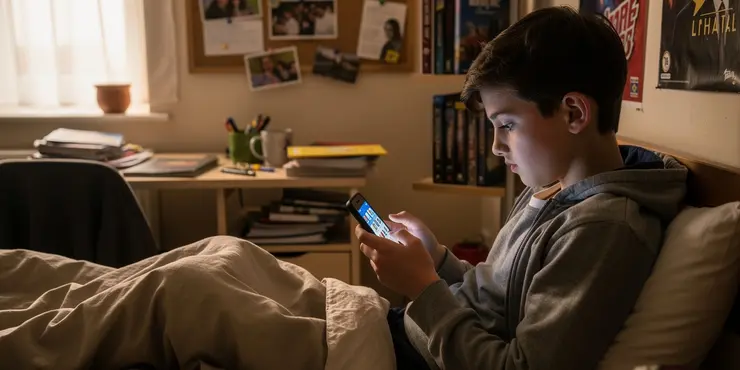
Find Help
More Items From Ergsy search
-
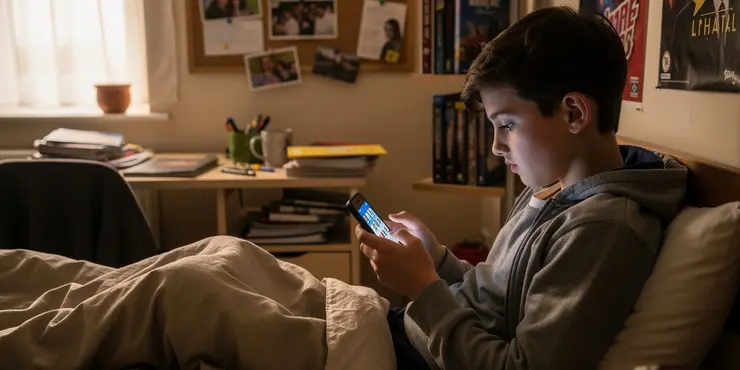
How does screen time before bed specifically affect adolescents?
Relevance: 100%
-
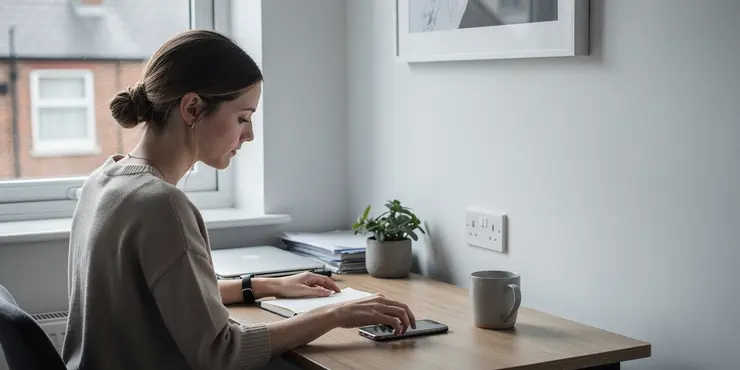
How does screen time affect sleep quality?
Relevance: 58%
-
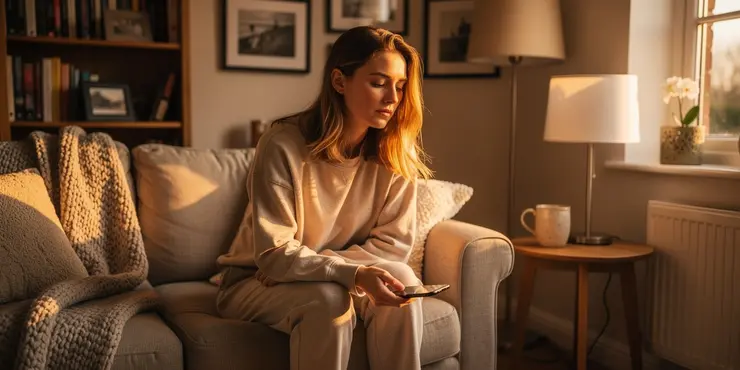
Can reducing screen time improve sleep quality?
Relevance: 58%
-
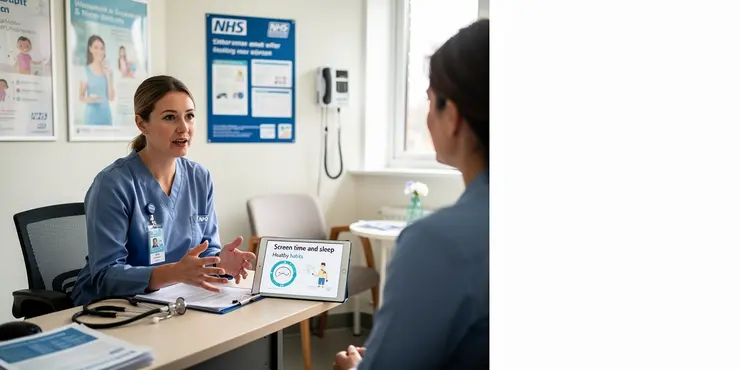
Does screen time impact REM sleep?
Relevance: 55%
-
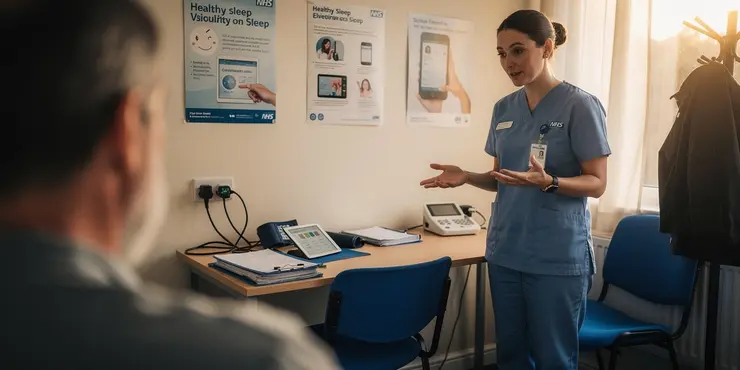
What is the main finding of the study linking screen time to sleep quality?
Relevance: 54%
-
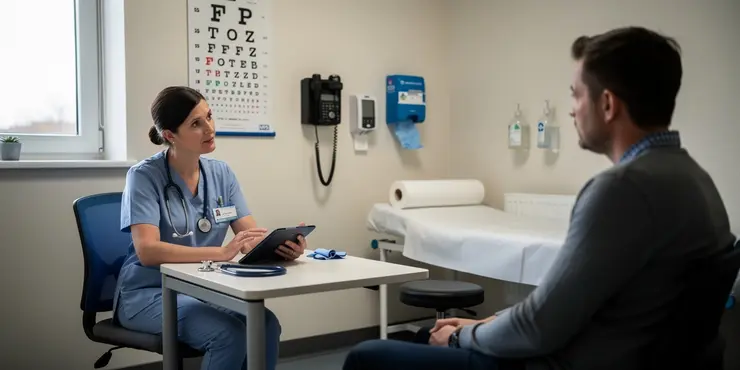
Study Shows Link Between Screen Time and Sleep Quality
Relevance: 53%
-
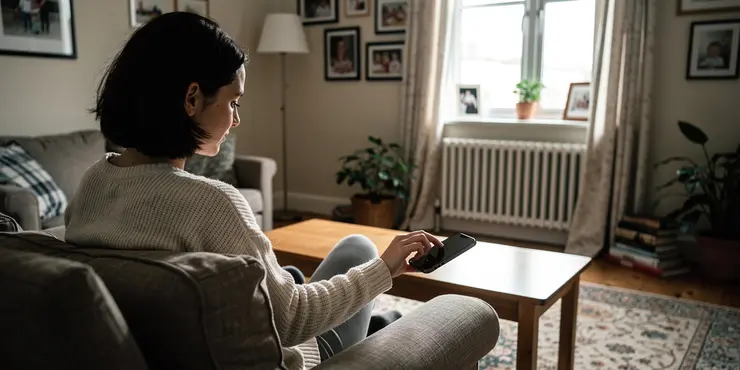
Are there any screen time guidelines recommended for improving sleep?
Relevance: 50%
-
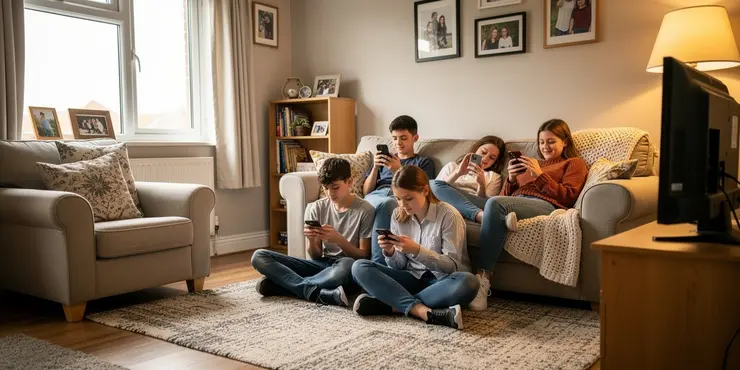
What demographic showed the most significant change in sleep quality due to screen time?
Relevance: 49%
-
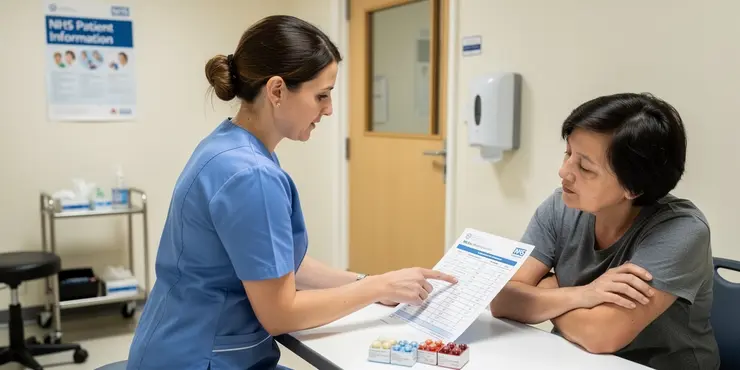
What are some tips for reducing screen time to improve sleep?
Relevance: 49%
-
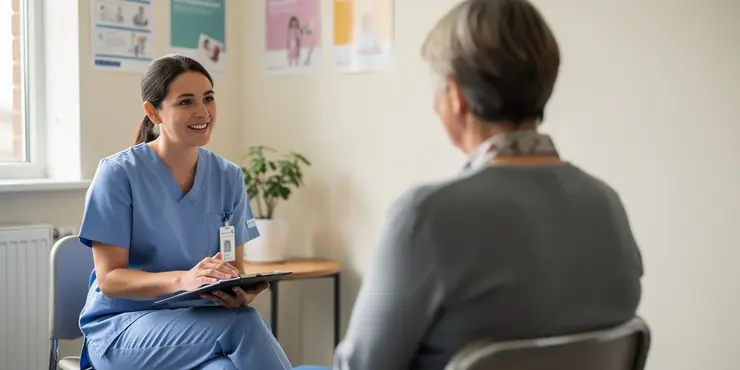
Does screen time affect both sleep onset and sleep maintenance?
Relevance: 48%
-
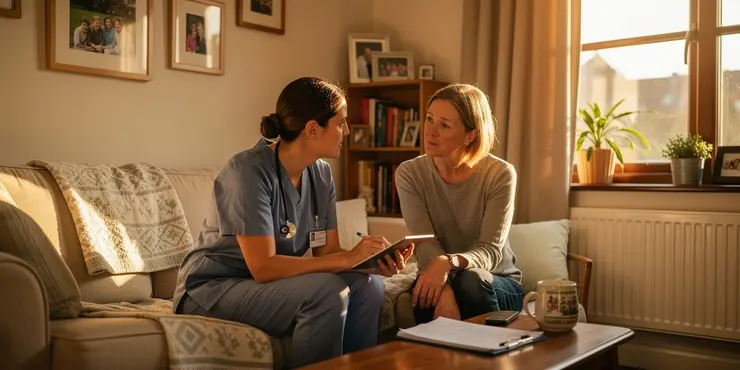
Do bed bugs only live in beds?
Relevance: 44%
-
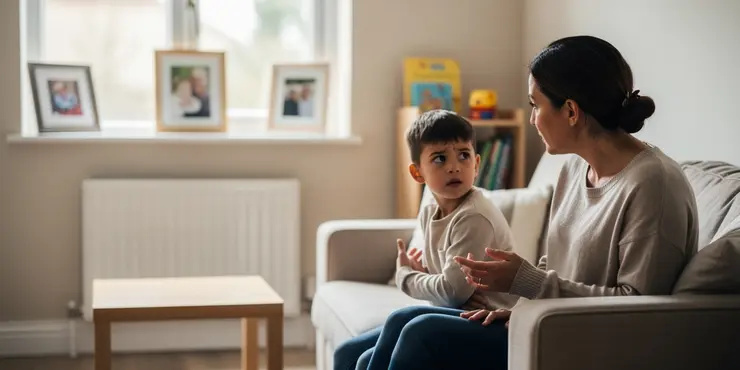
What is the role of parental monitoring in children's screen time and sleep?
Relevance: 43%
-
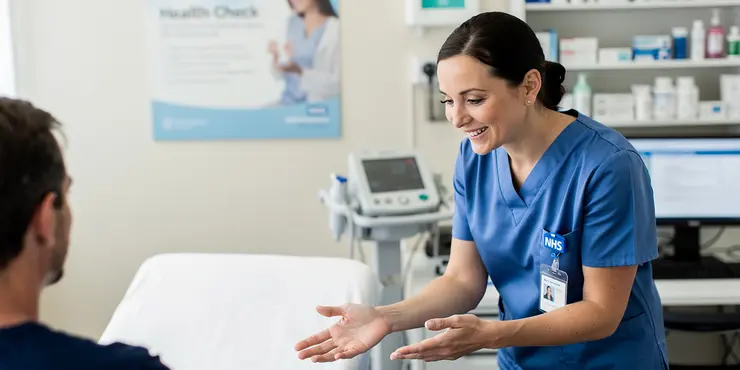
Is there a difference in screen time impact on sleep between weekdays and weekends?
Relevance: 43%
-
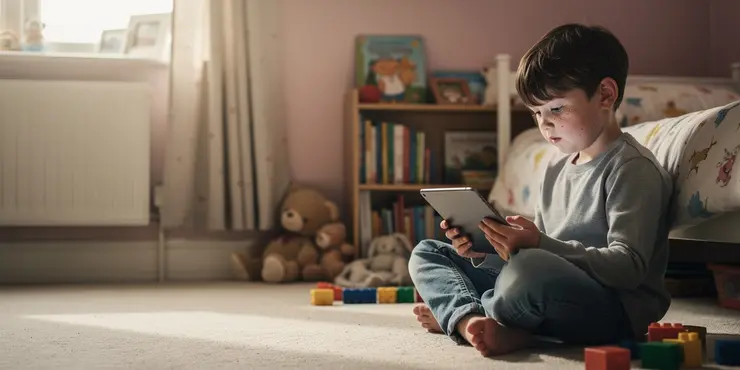
Are children more affected by screen time in relation to sleep than adults?
Relevance: 42%
-
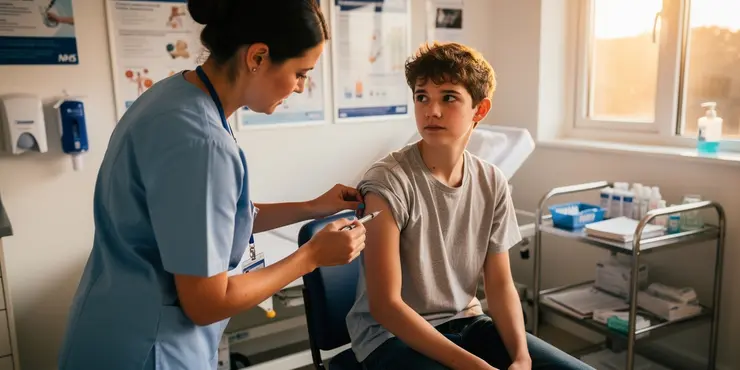
Does the CDC recommend meningitis vaccines for adolescents?
Relevance: 40%
-
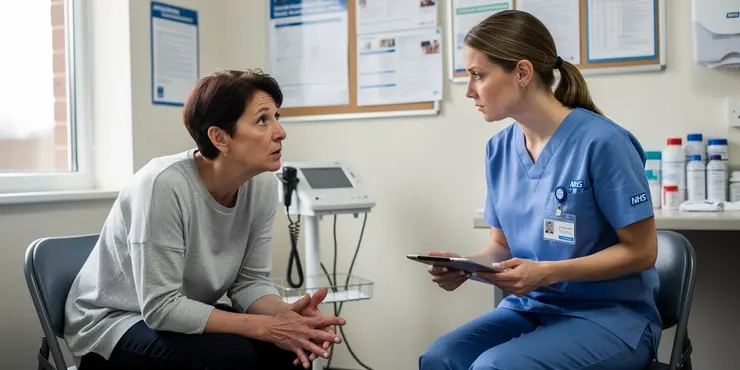
What are bed bugs?
Relevance: 40%
-
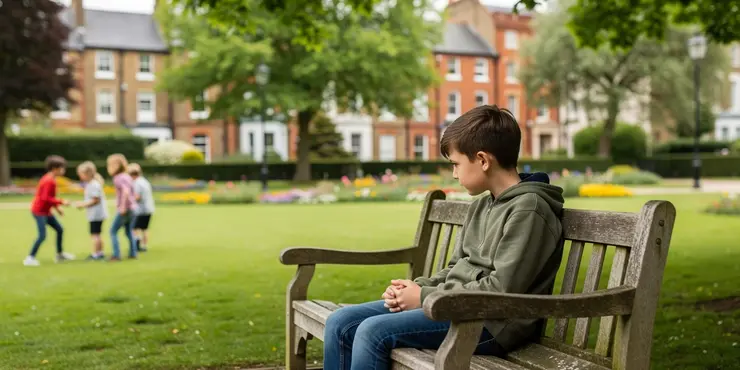
Navigating Mental Health Services for Children and Adolescents
Relevance: 39%
-
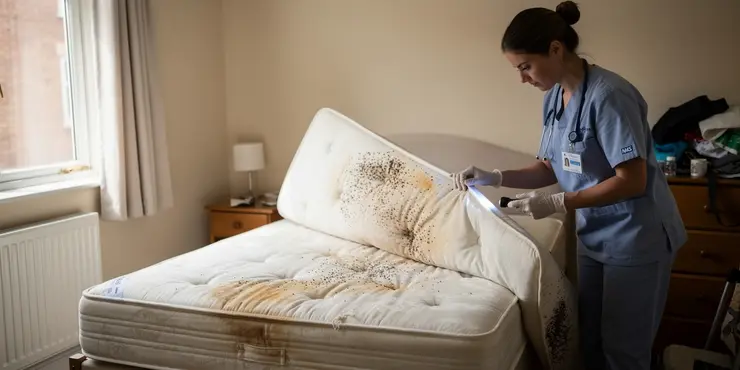
Bed Bugs / bedbugs
Relevance: 39%
-
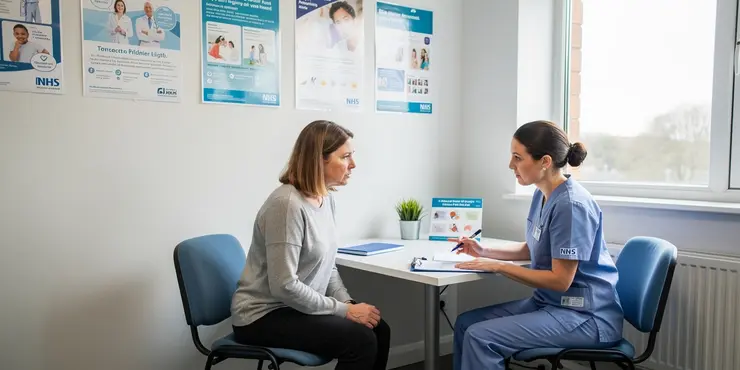
Are bed bugs dangerous?
Relevance: 38%
-
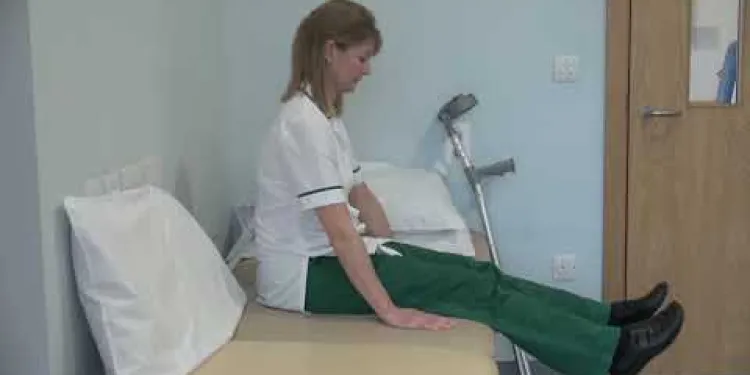
Hip replacement - getting into bed
Relevance: 37%
-
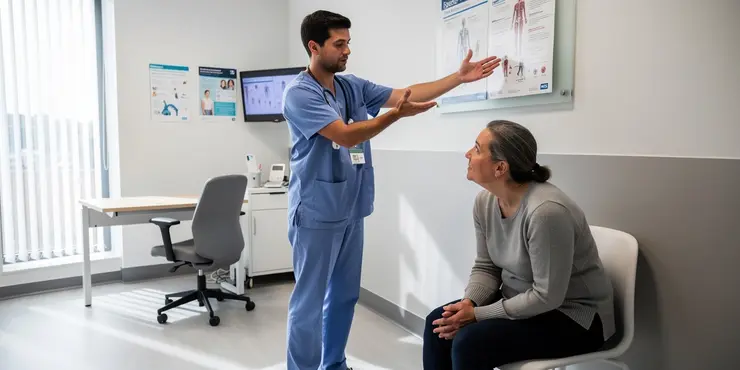
What are the signs of a bed bug infestation?
Relevance: 37%
-
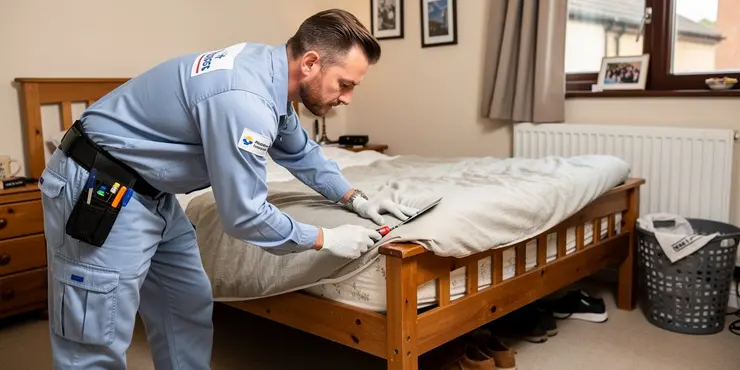
Why are bed bugs so difficult to eliminate?
Relevance: 37%
-
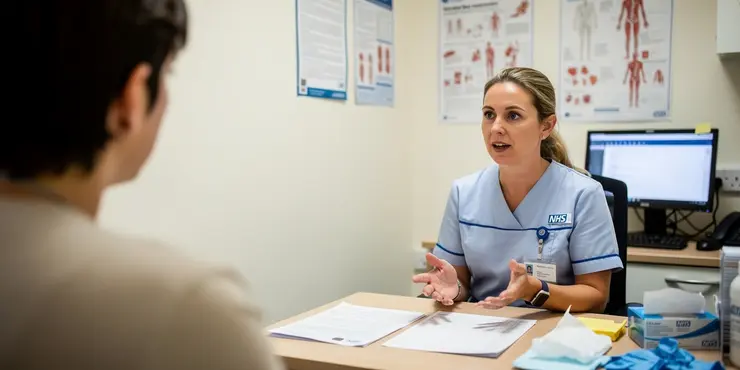
How can I prevent bringing bed bugs into my home?
Relevance: 36%
-
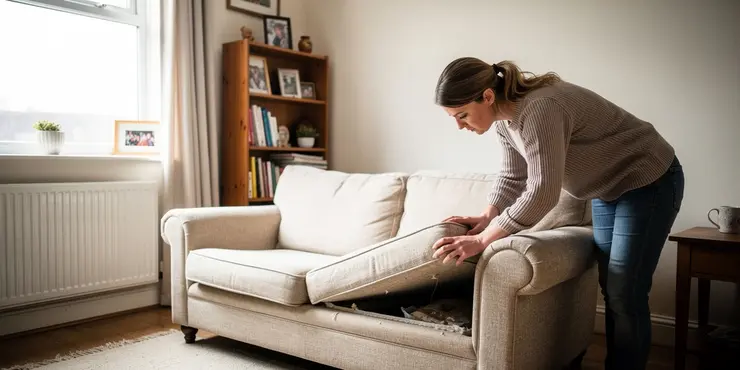
How do bed bugs enter my home?
Relevance: 36%
-
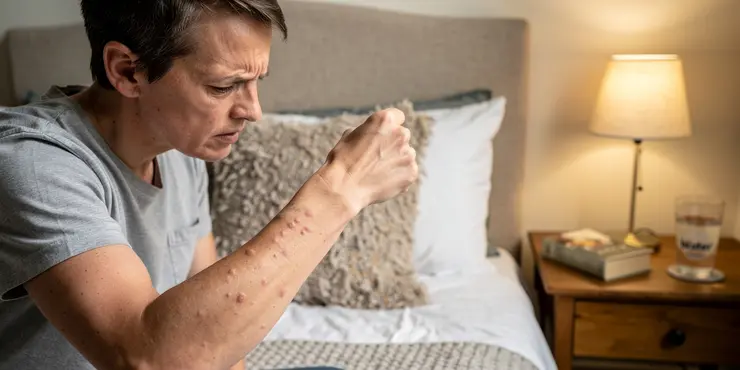
How can I tell if bites are from bed bugs?
Relevance: 36%
-
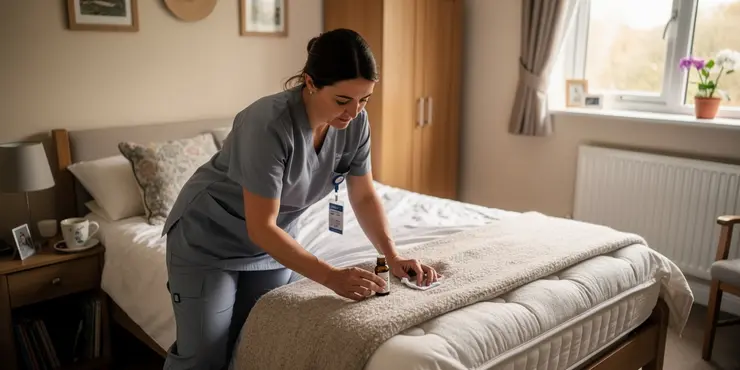
Are there any natural remedies for bed bugs?
Relevance: 35%
-
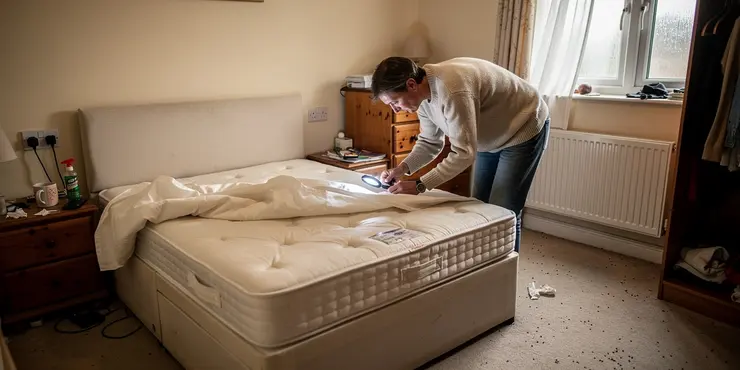
Can I get rid of bed bugs myself?
Relevance: 34%
-
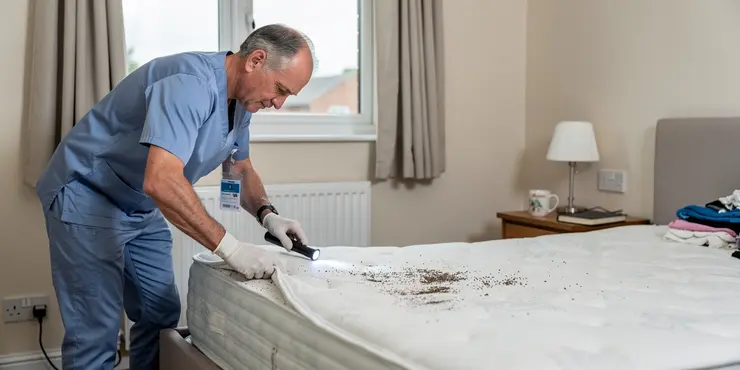
Will disposing of my mattress get rid of bed bugs?
Relevance: 34%
-
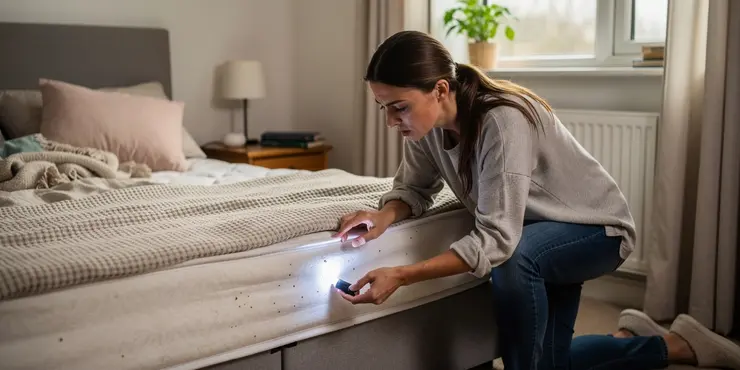
What should I do if I find bed bugs in my house?
Relevance: 34%
-
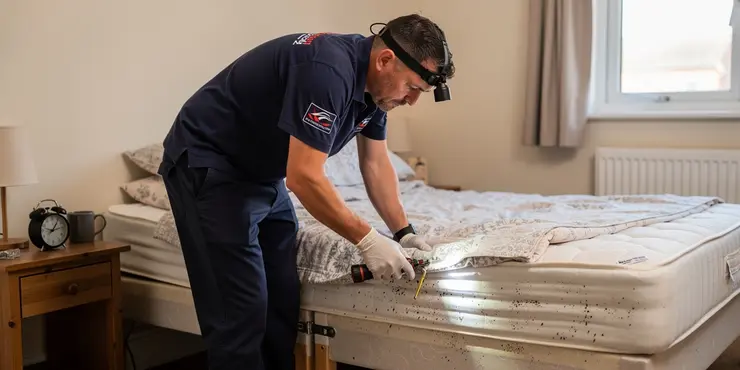
How long does a bed bug extermination process take?
Relevance: 33%
-
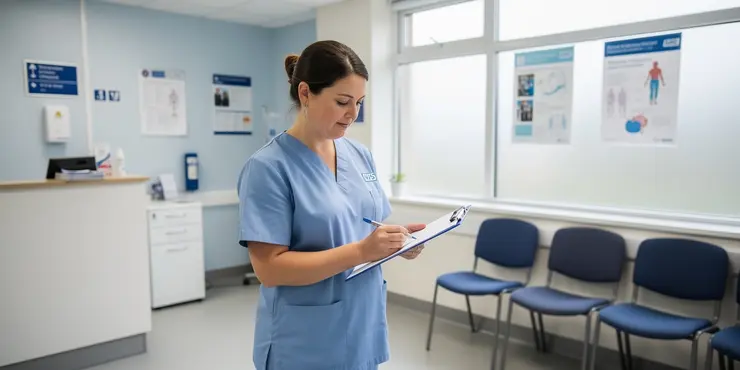
What items should I wash if I have bed bugs?
Relevance: 33%
-
Is screening painful or risky for my child?
Relevance: 32%
-
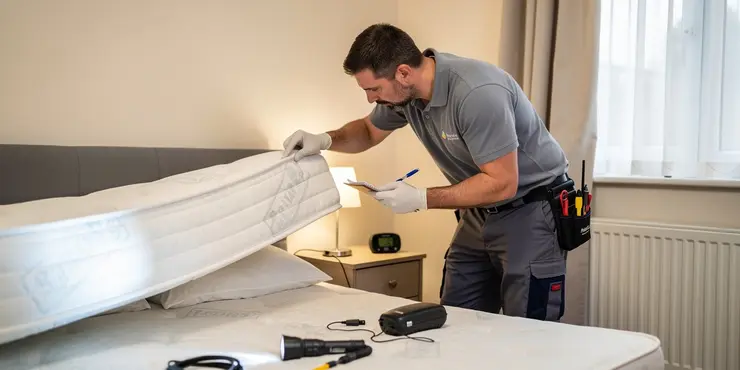
How much does professional bed bug extermination cost in the UK?
Relevance: 31%
-
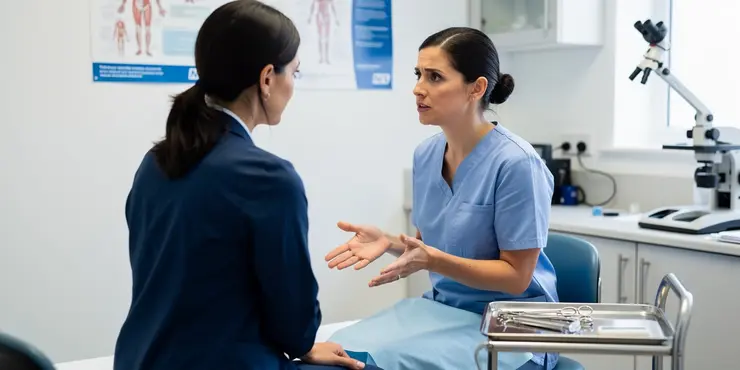
Cervical screening: what to expect | NHS
Relevance: 31%
-
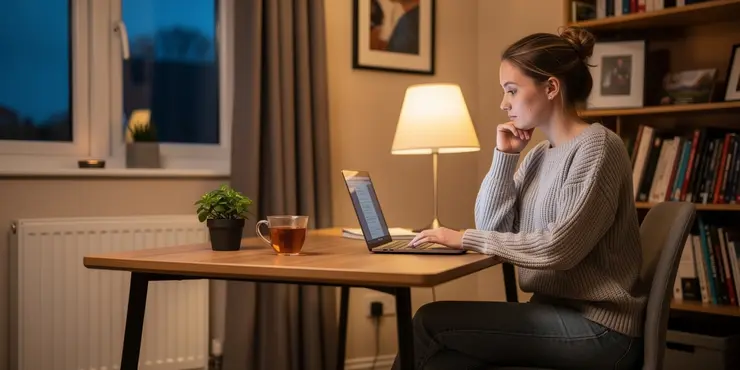
Is blue light from screens a factor in affecting sleep quality?
Relevance: 30%
-
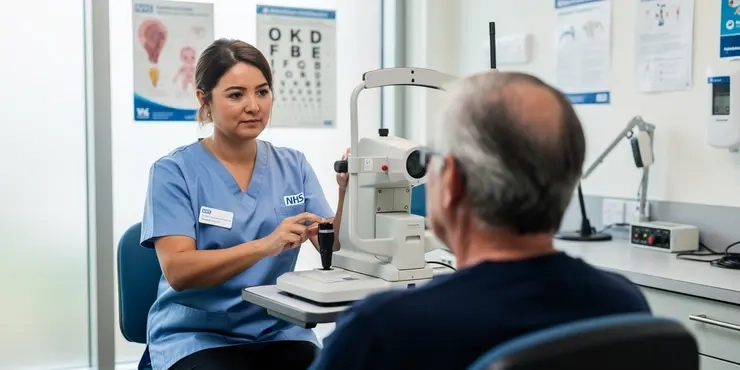
Derbyshire Diabetic Eye Screening - Diabetic Eye Screening
Relevance: 30%
-
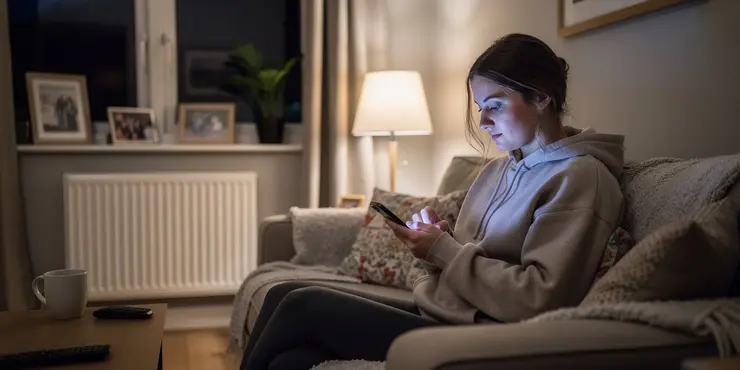
What are some long-term effects of poor sleep quality linked to screen time?
Relevance: 29%
-
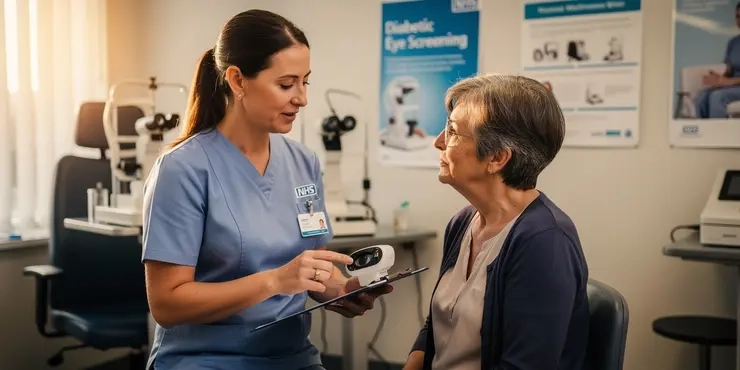
Derbyshire Diabetic Eye Screening - Your Screening Appointment
Relevance: 29%
-
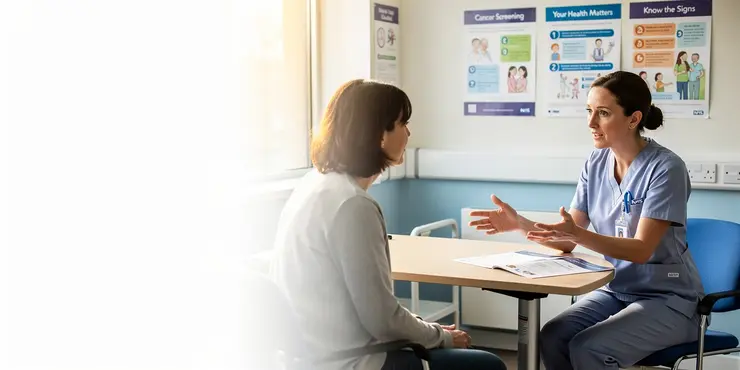
What is cancer screening?
Relevance: 29%
-
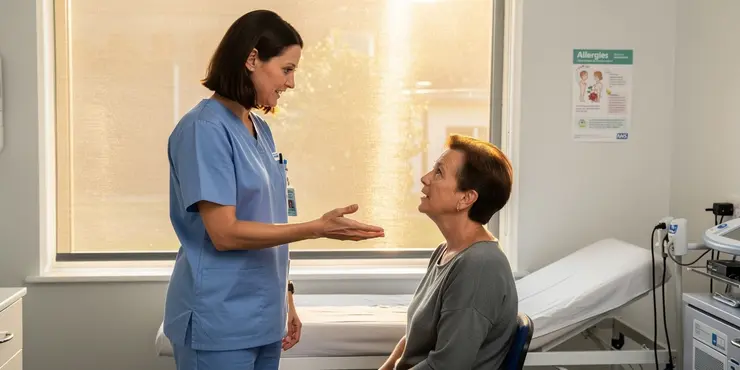
Can mosquito screens help reduce hay fever symptoms?
Relevance: 29%
Introduction
In today's digital age, the use of screens before bedtime is a common habit among adolescents. While technology provides various benefits, excessive screen time, particularly before sleep, can have detrimental effects on young people's health and well-being. Understanding how screen time affects adolescents' sleep patterns and overall health is critical for parents, educators, and the teens themselves.
The Impact on Sleep Quality
Screen time before bed primarily affects adolescents by disrupting their sleep quality. The blue light emitted by smartphones, tablets, and computers interferes with the production of melatonin, the hormone responsible for regulating sleep-wake cycles. Suppression of melatonin can lead to difficulties falling asleep, reduced sleep duration, and poorer sleep quality. A good night's sleep is crucial for adolescents, who require approximately 8 to 10 hours of sleep per night for optimal health and development.
Consequences on Physical Health
The disruption of sleep patterns caused by excessive screen time can have multiple adverse effects on adolescents' physical health. Insufficient sleep has been linked to a range of health issues, including obesity, weakened immune function, and an increased risk of developing chronic conditions like diabetes and cardiovascular diseases. Additionally, sedentary screen activities can reduce the time spent on physical exercise, further contributing to health problems.
Mental and Emotional Effects
Adequate sleep is essential not only for physical health but also for mental and emotional well-being. The sleep deprivation caused by excessive screen use can lead to mood swings, irritability, and increased stress levels among adolescents. Moreover, prolonged screen exposure, particularly on social media, can influence their mental health by increasing feelings of anxiety, depression, and loneliness. The lack of restorative sleep exacerbates these mental health issues, affecting academic performance and social interactions.
Strategies to Mitigate Screen Time Effects
Several strategies can help mitigate the negative effects of screen time on adolescents' sleep and health. One effective approach is establishing a digital curfew, where screens are turned off at least an hour before bedtime. Encouraging adolescents to engage in relaxing pre-sleep activities, such as reading or taking a warm bath, can also promote better sleep. Parents and caregivers can set a positive example by limiting their screen use and creating device-free zones in the home.
Conclusion
In conclusion, while screen time has become an integral part of adolescents' lives, its impact on sleep and health cannot be overlooked. By understanding the effects and implementing practical strategies to reduce screen time before bed, adolescents can improve their sleep quality, leading to better physical, mental, and emotional health. Educators, parents, and young people themselves must work together to achieve a balanced approach to technology use, fostering well-being and development during these formative years.
Introduction
Today, lots of young people use screens before bedtime. Screens like phones, tablets, and computers are fun and useful, but using them too much at night can be bad for health and sleep. It's important for parents, teachers, and young people to know how screens affect sleep and health.
The Impact on Sleep Quality
Using screens before bed can make it hard for young people to sleep well. The blue light from screens stops the body from making melatonin, a hormone that helps us sleep. Less melatonin can make it hard to sleep, and the sleep may not be as good. Young people need about 8 to 10 hours of good sleep every night to stay healthy and grow well.
Consequences on Physical Health
Too much screen time and bad sleep can harm young people's bodies. Not sleeping enough can cause problems, like gaining too much weight, getting sick more often, and higher chances of getting serious diseases like diabetes and heart issues. Also, sitting with screens means less time for exercise, which can also affect health.
Mental and Emotional Effects
Good sleep is important for feeling good mentally and emotionally. Lack of sleep because of too much screen use can make young people moody, grumpy, and stressed. Spending too much time on social media can also make them feel anxious, sad, and alone. When sleep is not restful, it can make these feelings worse and affect schoolwork and friendships.
Strategies to Mitigate Screen Time Effects
There are ways to help reduce the bad effects of screen use on sleep and health. One way is to set a time to turn off screens at least one hour before bed. Doing calming things before bed, like reading a book or taking a warm bath, can help with better sleep too. Parents can help by limiting their screen time and making some areas in the house free of devices.
Conclusion
In conclusion, screens are a big part of young people's lives, but they can harm sleep and health. By knowing the effects and using simple ways to cut screen time before bed, young people can sleep better and be healthier. Parents, teachers, and young people should all work together to balance screen use, making sure they stay healthy and happy as they grow up.
Frequently Asked Questions
What is screen time?
Screen time refers to the amount of time spent using devices with screens such as smartphones, tablets, computers, and televisions.
How does screen time before bed affect sleep in adolescents?
Screen time before bed can disrupt sleep in adolescents by delaying the release of melatonin, making it harder to fall asleep and reducing sleep quality.
Why is melatonin important for sleep?
Melatonin is a hormone that regulates sleep-wake cycles. It helps signal the body that it is time to sleep, promoting relaxation and drowsiness.
What types of screens are most disruptive before bed?
Screens that emit blue light, such as those on smartphones, tablets, and computers, are the most disruptive because blue light interferes with melatonin production.
How long before bed should adolescents stop using screens?
Experts often recommend that adolescents stop using screens at least 30 minutes to 1 hour before bedtime to help improve sleep quality.
Can screen time before bed lead to sleep deprivation?
Yes, excessive screen time before bed can lead to sleep deprivation due to difficulty falling asleep and reduced overall sleep duration.
What are the cognitive effects of inadequate sleep in adolescents?
Inadequate sleep can lead to impaired attention, memory, decision making, and academic performance in adolescents.
How does screen time before bed affect mental health?
Excessive screen time before bed can contribute to mental health issues such as anxiety and depression in adolescents due to lack of sleep and overstimulation.
Can night mode or blue light filters on devices help reduce sleep disruption?
Night mode or blue light filters can reduce the amount of blue light emitted from screens, which may help minimize sleep disruption for adolescents.
What activities are better for adolescents before bed instead of screen time?
Reading a book, listening to calming music, or practicing relaxation techniques are better pre-bed activities that can help promote better sleep.
How does screen time impact screen addiction tendencies in adolescents?
Excessive screen time can contribute to screen addiction, leading to cravings, withdrawal symptoms, and difficulty controlling screen use.
Are there any benefits to reducing screen time before bed?
Reducing screen time before bed can lead to better sleep quality, improved mood, enhanced academic performance, and better overall health in adolescents.
How much sleep do adolescents need?
Adolescents typically need about 8 to 10 hours of sleep per night for optimal health and functioning.
What is the impact of social media on sleep in adolescents?
Social media usage, especially before bed, can increase alertness, anxiety, and stimulation, leading to delayed sleep onset and poorer sleep quality.
Does the content viewed on screens before bed affect sleep quality?
Yes, stimulating or violent content can increase alertness and stress, making it harder for adolescents to wind down and fall asleep.
Can parental controls help manage screen time before bed?
Yes, parental controls can help limit screen time, set device curfews, and monitor usage, encouraging healthier habits around bedtime.
What role does light play in regulating sleep cycles?
Light exposure affects circadian rhythms and melatonin production, with blue light from screens being particularly disruptive to natural sleep patterns.
Can mindfulness or relaxation apps on screens be beneficial before bed?
While screens typically disrupt sleep, some mindfulness or relaxation apps may help, especially if used with blue light filters and in audio-only mode.
How can schools support healthy sleep habits for adolescents?
Schools can educate students on the importance of sleep, promote screen-free homework time, and encourage consistent sleep schedules.
What are some signs that screen time is affecting an adolescent’s sleep?
Signs include difficulty falling asleep, frequent waking during the night, daytime sleepiness, irritability, and difficulty concentrating.
What is screen time?
Screen time is the amount of time you spend looking at screens. This can be a TV, computer, tablet, or phone. It is like how much time you watch or play on these devices.
If you find reading hard, you can:
- Use pictures or videos to help understand.
- Ask a grown-up to read with you.
- Use apps that read text out loud.
Taking breaks from screens is good for your eyes and health!
Screen time means how long you use things like phones, tablets, computers, and TVs. These things have screens you look at.
How does looking at screens before bed affect sleep for young people?
Looking at screens like phones, tablets, or TVs before going to bed can make it harder for kids and teenagers to sleep well.
Here are some ways screens can affect sleep:
- Screens have bright lights that can trick the brain into thinking it's still daytime.
- Playing games or watching exciting shows makes it hard to calm down for sleep.
- Texting or chatting with friends keeps the mind active even when it's time to relax.
For better sleep:
- Try to turn off screens at least an hour before bedtime.
- Do calm activities like reading a book or listening to soft music.
It's important to have a good bedtime routine to help the body and mind relax.
Looking at screens before bed can make it hard for teenagers to sleep. This happens because screens keep their brains awake, so a special sleep hormone called melatonin comes out later. This makes it tricky to fall asleep and sleep well.
Why is melatonin important for sleep?
Melatonin helps us sleep well. It is a chemical in our bodies. It tells us when it is time to sleep.
Here is how melatonin works:
- It makes you feel sleepy at night.
- It helps you sleep through the night.
Tips to sleep better:
- Go to bed at the same time every night.
- Turn off bright lights and screens before bed.
- Try listening to calming music or sounds.
Melatonin is a chemical in your body that helps you sleep. It tells your body when it's time to sleep and helps you relax and feel sleepy.
What screens make it hard to sleep?
Screens like phones, tablets, and computers have blue light. This blue light can be bad because it makes it hard for our bodies to make a thing called melatonin. Melatonin helps us sleep.
When should kids stop using screens before bed?
Experts say it is best for teenagers to stop using screens like phones or computers 30 minutes to 1 hour before they go to sleep. This can help them sleep better.
Does using screens before bed make it hard to sleep?
Using phones, tablets, or computers before bed can make it hard to fall asleep. It is a good idea to turn off screens at least one hour before bedtime. Try reading a book or listening to calm music instead. This helps the brain get ready for sleep.
Looking at screens too much before bed can make it hard to fall asleep. This means you might not get enough sleep.
How does not getting enough sleep affect young people's brains?
Not getting enough sleep can make it hard for young people to think clearly. Here are some things that might happen: 1. **Hard to Focus**: It can be tough to keep your attention on things like schoolwork. 2. **Forgetful**: You might not remember things as well as usual. 3. **Slow Thinking**: It can take longer to solve problems or understand new ideas. 4. **Mood Changes**: You might feel grumpy or sad more easily. Here are some tools that can help: - **Set a Bedtime**: Go to bed at the same time every night. - **Create a Cozy Space**: Make sure your bedroom is quiet and comfy. - **Limit Screen Time**: Turn off screens like phones and tablets before bed. - **Relax Before Bed**: Try reading a book or listening to soft music to help you relax.Not sleeping enough can make it hard for teenagers to focus, remember things, make good choices, and do well in school.
How does using screens before bed change how we feel?
Watching TV, using a phone, or playing on a tablet right before bed can make it hard to sleep. Not getting enough sleep can make us feel sad, tired, or worried. It’s good to stop using screens at least an hour before bedtime.
To help, try reading a book, listening to calming music, or talking with someone. This can make it easier to fall asleep and feel better the next day.
Using screens too much before bed can make young people feel worried or sad. This can happen because they don't sleep enough and their brains get too busy.
Do night mode or blue light filters on screens help you sleep better?
Using night mode or a blue light filter on your phone, tablet, or computer might help you sleep better. These settings make the screen look yellowish instead of bright blue.
This change can be good for your eyes and might help you sleep more easily.
Here are some tips to help you sleep better:
- Try using night mode or blue light filters in the evening.
- Have a regular bedtime and wake-up time.
- Put your device away at least an hour before bedtime.
If you need help, ask someone you trust or use apps that remind you to take breaks from screens.
Night mode and blue light filters help make screens less bright at night. This can help teenagers sleep better because it stops the bright light from keeping them awake.
What are good things for teenagers to do before bed instead of using screens?
Here are some fun things teens can do before sleep:
- Read a Book: Look at a fun story or comic.
- Draw or Color: Use crayons or pencils to make pictures.
- Write in a Journal: Write about your day or your thoughts.
- Listen to Music: Play some calm songs.
- Stretch or Exercise: Do easy stretches or light yoga.
- Talk to Family: Chat with a parent or sibling about your day.
You can try these things to feel calm before bed:
- Dim the lights in your room.
- Use a nightlight if you like.
- Take deep breaths to relax.
Before going to bed, try reading a book. You can also listen to calming music. Doing relaxing things like this can help you sleep better.
How does using screens affect teens getting addicted to them?
Spending too much time on screens can make you want to use them more and more. It can be hard to stop and might make you feel bad when you don't get to use them.
Here are some tips to help:
- Set a time limit for using screens.
- Take breaks and do other fun activities.
- Ask a friend or family member to help you stick to your screen time rules.
Is it good to spend less time on screens before bed?
Yes! Spending less time on screens before sleeping can help you:
- Sleep better
- Feel more relaxed
- Have more energy in the morning
Here are some tips to help you:
- Read a book
- Listen to calming music
- Do some easy exercises
- Try breathing slowly to calm down
Spending less time looking at screens before bed can help young people sleep better. It can also make them feel happier, do better in school, and stay healthy.
How much sleep do teenagers need?
Teenagers need about 8 to 10 hours of sleep every night. Good sleep helps their bodies and minds grow strong and healthy.
To help get good sleep:
- Go to bed at the same time every night.
- Keep the bedroom dark and quiet.
- Turn off screens, like phones and TVs, an hour before bed.
- Try relaxing activities, like reading or listening to calm music.
If you have trouble sleeping, talk to a parent or caregiver for help.
Teenagers need about 8 to 10 hours of sleep every night to stay healthy and feel good.
How does social media affect sleep in teenagers?
Let's learn about how using social media can change how well teenagers sleep. This means we will talk about things like staying up late online, feeling stressed because of what people post, or waking up in the night to check your phone.
Ways to help sleep better:
- Set a time to put away phones and tablets before bed.
- Keep your bedroom quiet and dark.
- Try relaxing activities before sleep, like reading a book or listening to calm music.
Remember, good sleep helps you feel happier and do well in school!
Using social media, like checking your phone or computer before bed, can make you feel more awake and worried. This can make it hard to fall asleep and you might not sleep well.
Does looking at screens before bed change how well you sleep?
Some people think looking at screens, like phones or tablets, before bed can make it hard to sleep.
If you have trouble sleeping, try these ideas:
- Turn off screens at least 1 hour before bed.
- Read a book or listen to soft music instead.
- Use a night light if you are afraid of the dark.
Yes, exciting or scary things can make teenagers feel more awake and stressed. This can make it hard for them to calm down and go to sleep.
Can parents use tools to help manage screen time before bed?
Parents can use special tools to help kids watch less screen time before bed.
These tools are called parental controls. They can turn off the TV, phone, or tablet at bedtime.
Some things that can help are:
- Setting a timer to stop screen time at night.
- Turning on night mode to make screens less bright.
- Making a bedtime routine without screens, like reading a book.
These tips can help kids sleep better.
Yes, parents can use special tools to help. These tools can stop too much screen time, set when to turn off devices at night, and keep an eye on how much the devices get used. This helps kids have better bedtime habits.
How does light help us sleep?
Light tells our body when to sleep and when to wake up.
It helps set a pattern like sleeping at night and being awake in the day.
Special tools like night lights can help if you are scared of the dark.
Using sleep masks can help if too much light comes in at night.
Light can change how we sleep. It affects our body clock and how we make a sleepy chemical called melatonin. Blue light from screens like phones and tablets can make it harder to fall asleep.
Here are some tips to help:
- Turn off screens 1 hour before bed.
- Use a night light or dim lamp instead of bright lights.
- Try using screen filters or glasses that block blue light.
- Make your room dark and quiet for sleeping.
Can apps for calming and relaxing help before sleep?
Some apps on phones and tablets help people calm down and feel relaxed.
They play soft music or show pictures that help you feel peaceful.
Using these apps before sleep might help you sleep better.
If you have trouble understanding what the app says, ask someone to help you.
Screens can make it hard to sleep. But some apps can help you relax. These are called mindfulness or relaxation apps.
To use them safely at night, try these tips:
- Use a blue light filter on your screen. This helps your eyes.
- Listen without looking at the screen. Just use the audio.
How can schools help teenagers sleep well?
Schools can help teenagers get good sleep. Here are some ways:
- Teach about the importance of sleep in class.
- Start school later in the morning. Teens need more sleep.
- Create a quiet space for students to relax during breaks.
- Encourage regular sleep times, even on weekends.
- Support fun activities that help relax, like reading or drawing.
These ideas help teenagers feel happy and do well in school.
Schools can teach kids why sleep is important. They can ask kids to do homework without screens. Schools can also help kids go to bed and get up at the same time every day.
How can you tell if screen time is affecting a teenager's sleep?
Here are some signs to look for:
- The teenager has trouble falling asleep.
- They are sleepy during the day.
- They wake up a lot at night.
If you're worried, try these tips:
- Set a time to turn off screens before bed.
- Use apps that remind you to take breaks from screens.
- Create a bedtime routine to help relax.
Here are some signs to look out for:
- It is hard to fall asleep at night.
- You wake up a lot during the night.
- You feel sleepy during the day.
- You feel grumpy or upset.
- It is hard to focus or pay attention.
Useful Links
This website offers general information and is not a substitute for professional advice.
Always seek guidance from qualified professionals.
If you have any medical concerns or need urgent help, contact a healthcare professional or emergency services immediately.
Some of this content was generated with AI assistance. We’ve done our best to keep it accurate, helpful, and human-friendly.
- Ergsy carfully checks the information in the videos we provide here.
- Videos shown by Youtube after a video has completed, have NOT been reviewed by ERGSY.
- To view, click the arrow in centre of video.
- Most of the videos you find here will have subtitles and/or closed captions available.
- You may need to turn these on, and choose your preferred language.
- Go to the video you'd like to watch.
- If closed captions (CC) are available, settings will be visible on the bottom right of the video player.
- To turn on Captions, click settings .
- To turn off Captions, click settings again.
More Items From Ergsy search
-

How does screen time before bed specifically affect adolescents?
Relevance: 100%
-

How does screen time affect sleep quality?
Relevance: 58%
-

Can reducing screen time improve sleep quality?
Relevance: 58%
-

Does screen time impact REM sleep?
Relevance: 55%
-

What is the main finding of the study linking screen time to sleep quality?
Relevance: 54%
-

Study Shows Link Between Screen Time and Sleep Quality
Relevance: 53%
-

Are there any screen time guidelines recommended for improving sleep?
Relevance: 50%
-

What demographic showed the most significant change in sleep quality due to screen time?
Relevance: 49%
-

What are some tips for reducing screen time to improve sleep?
Relevance: 49%
-

Does screen time affect both sleep onset and sleep maintenance?
Relevance: 48%
-

Do bed bugs only live in beds?
Relevance: 44%
-

What is the role of parental monitoring in children's screen time and sleep?
Relevance: 43%
-

Is there a difference in screen time impact on sleep between weekdays and weekends?
Relevance: 43%
-

Are children more affected by screen time in relation to sleep than adults?
Relevance: 42%
-

Does the CDC recommend meningitis vaccines for adolescents?
Relevance: 40%
-

What are bed bugs?
Relevance: 40%
-

Navigating Mental Health Services for Children and Adolescents
Relevance: 39%
-

Bed Bugs / bedbugs
Relevance: 39%
-

Are bed bugs dangerous?
Relevance: 38%
-

Hip replacement - getting into bed
Relevance: 37%
-

What are the signs of a bed bug infestation?
Relevance: 37%
-

Why are bed bugs so difficult to eliminate?
Relevance: 37%
-

How can I prevent bringing bed bugs into my home?
Relevance: 36%
-

How do bed bugs enter my home?
Relevance: 36%
-

How can I tell if bites are from bed bugs?
Relevance: 36%
-

Are there any natural remedies for bed bugs?
Relevance: 35%
-

Can I get rid of bed bugs myself?
Relevance: 34%
-

Will disposing of my mattress get rid of bed bugs?
Relevance: 34%
-

What should I do if I find bed bugs in my house?
Relevance: 34%
-

How long does a bed bug extermination process take?
Relevance: 33%
-

What items should I wash if I have bed bugs?
Relevance: 33%
-
Is screening painful or risky for my child?
Relevance: 32%
-

How much does professional bed bug extermination cost in the UK?
Relevance: 31%
-

Cervical screening: what to expect | NHS
Relevance: 31%
-

Is blue light from screens a factor in affecting sleep quality?
Relevance: 30%
-

Derbyshire Diabetic Eye Screening - Diabetic Eye Screening
Relevance: 30%
-

What are some long-term effects of poor sleep quality linked to screen time?
Relevance: 29%
-

Derbyshire Diabetic Eye Screening - Your Screening Appointment
Relevance: 29%
-

What is cancer screening?
Relevance: 29%
-

Can mosquito screens help reduce hay fever symptoms?
Relevance: 29%


